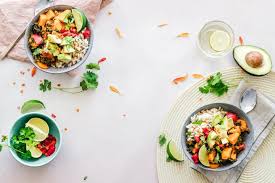In 2024, the focus on health and wellness continues to evolve, with an increasing emphasis on personalized and science-backed nutrition strategies for effective weight loss. Understanding and implementing the right nutrition tips can help you achieve and maintain a healthy weight while supporting overall well-being. This guide outlines the best nutrition tips for weight loss in 2024, providing you with practical and evidence-based strategies for healthy eating.
1. Embrace a Balanced Diet

A balanced diet is fundamental for weight loss and overall health. In 2024, the emphasis remains on consuming a variety of foods to ensure you get all the essential nutrients your body needs. Here’s how to build a balanced plate:
- Include Lean Proteins: Incorporate sources of lean protein such as chicken, turkey, fish, tofu, and legumes. Proteins are crucial for muscle maintenance and can help you feel full longer, reducing overall calorie intake.
- Choose Whole Grains: Opt for whole grains like quinoa, brown rice, and whole-wheat bread over refined grains. Whole grains provide fiber, which aids digestion and helps control appetite.
- Load Up on Vegetables and Fruits: Vegetables and fruits are rich in vitamins, minerals, and fiber. Aim to fill half of your plate with these nutrient-dense foods to support satiety and overall health.
2. Control Portion Sizes
Portion control is a key strategy for effective weight loss. Even healthy foods can contribute to weight gain if consumed in excessive amounts. Here’s how to manage portion sizes:
- Use Smaller Plates: Using smaller plates can help control portion sizes and prevent overeating.
- Mindful Eating: Pay attention to your hunger and fullness cues. Eat slowly and savor each bite to avoid overeating.
- Pre-Portion Snacks: Instead of eating directly from large packages, portion out snacks into smaller servings to control calorie intake.
3. Focus on Nutrient-Dense Foods
Nutrient-dense foods provide more nutrients per calorie, making them an excellent choice for weight loss. Prioritize foods that offer high nutritional value with fewer calories:
- Leafy Greens: Vegetables like spinach, kale, and Swiss chard are low in calories and high in vitamins and minerals.
- Berries: Berries such as strawberries, blueberries, and raspberries are rich in antioxidants and fiber while being lower in sugar.
- Nuts and Seeds: Almonds, chia seeds, and flaxseeds are good sources of healthy fats and protein. Consume them in moderation to support satiety.
4. Incorporate Healthy Fats
Not all fats are created equal. Healthy fats can support weight loss by improving satiety and providing essential fatty acids. Include the following in your diet:
- Avocados: Avocados are rich in monounsaturated fats, which can help reduce bad cholesterol levels and improve heart health.
- Olive Oil: Olive oil is another source of healthy fats. Use it in moderation for cooking or dressings.
- Fatty Fish: Fish like salmon and mackerel are high in omega-3 fatty acids, which support heart health and may help with weight management.
5. Stay Hydrated

Hydration is often overlooked but is essential for weight loss and overall health. Proper hydration helps regulate appetite and supports metabolic functions. Here’s how to stay hydrated:
- Drink Water Regularly: Aim for at least 8 glasses of water a day. Drinking water before meals can help you feel full and reduce calorie intake.
- Limit Sugary Drinks: Avoid sugary beverages like sodas and fruit juices, which can add unnecessary calories to your diet.
- Incorporate Hydrating Foods: Eat water-rich foods such as cucumbers, watermelon, and oranges to contribute to your daily hydration needs.
6. Plan Your Meals and Snacks
Meal planning and preparation can help you stay on track with your weight loss goals. Here are some strategies for effective meal planning:
- Create a Weekly Menu: Plan your meals and snacks for the week ahead. This can help you make healthier choices and avoid impulsive eating.
- Prep Meals in Advance: Prepare and portion out meals and snacks ahead of time to ensure you have healthy options readily available.
- Keep Healthy Snacks on Hand: Stock up on nutritious snacks like cut vegetables, nuts, and yogurt to curb hunger between meals.
7. Limit Processed Foods and Added Sugars
Processed foods and added sugars can hinder weight loss and negatively impact health. Reducing your intake of these foods can help you achieve better results:
- Avoid Highly Processed Foods: Minimize consumption of foods high in trans fats, sodium, and artificial additives.
- Read Labels: Check nutrition labels for added sugars and choose products with minimal or no added sugars.
- Cook at Home: Preparing meals at home allows you to control the ingredients and avoid hidden sugars and unhealthy fats.
8. Practice Mindful Eating
Mindful eating involves paying attention to your eating habits and making conscious food choices. This practice can improve your relationship with food and support weight loss:
- Eat Without Distractions: Avoid eating in front of the TV or computer. Focus on your meal to better recognize hunger and fullness cues.
- Chew Slowly and Thoroughly: Take your time to chew your food well and enjoy each bite. This can help you feel more satisfied and prevent overeating.
- Listen to Your Body: Tune in to your body’s hunger and fullness signals. Eat when you’re hungry and stop when you’re comfortably full.
9. Monitor Your Progress
Tracking your progress can help you stay motivated and make adjustments as needed. Consider these methods:
- Keep a Food Journal: Record what you eat and drink, as well as your physical activity. This can help identify patterns and areas for improvement.
- Use Apps and Tools: Utilize apps that track nutrition, calories, and exercise to stay on top of your goals.
- Set Realistic Goals: Establish achievable weight loss goals and celebrate your progress along the way.
10. Seek Professional Guidance

If you’re struggling to achieve your weight loss goals or have specific dietary needs, consider seeking guidance from a nutrition professional:
- Consult a Registered Dietitian: A registered dietitian can provide personalized nutrition advice, meal planning assistance, and support tailored to your needs.
- Consider a Health Coach: A health coach can help you develop and maintain healthy habits and provide motivation and accountability.
Conclusion
Achieving and maintaining weight loss in 2024 involves adopting a holistic approach to nutrition. By embracing a balanced diet, controlling portion sizes, focusing on nutrient-dense foods, and incorporating healthy fats, you can create a sustainable and effective weight loss strategy. Stay hydrated, plan your meals, limit processed foods, practice mindful eating, and monitor your progress to support your journey. For personalized guidance, don’t hesitate to seek advice from nutrition professionals. With these strategies, you can successfully reach your weight loss goals while promoting overall health and well-being.

